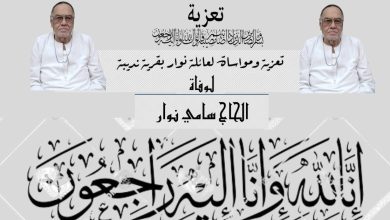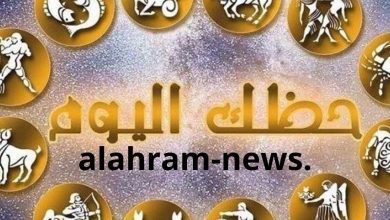The phenomenon of repetition of "knowledge" in Surat Al-Kahf

Written by: Professor Dr. Shams Ragheb
First: Surat Al-Kahf is Meccan, its verses are one hundred and ten, and it is the sixty-eighth in the order of revelation of the surahs.
The verses of the surah, as it is included in seventy-one verses, in the beginning of which comes the story of the Companions of the Cave, and in the middle is the story of Moses with al-Khidr
– Peace be upon them both – and at its conclusion is the story of Dhul-Qarnayn, as I mentioned in the manner of representation the story of the believer with the owner of the two gardens, and he referred briefly to the story of Adam and Iblees, and as for the rest of the verses – in
The most general – it is issues related to faith and proof of the message.
• Some books of interpretation indicate that the main subject is in Surah
Al-Kahf is the consolidation of the foundations of the correct Islamic faith that includes monotheism, Muhammadan prophecy and the Last Day, and proving that the resurrection
Right, and that the believer is rewarded with a good reward, and that the unbeliever receives a reward
His curse and disbelief in this world and the Hereafter (1).
• As others pointed out that the main axis in the surah is infallibility
From trials, such as the trial of the Sultan, the trial of youth, the trial of money and children, the trial of Satan, the trial of knowledge, and the trial of Gog and Magog.
• These views can be accepted in the general framework of the surah, but the context
The external and internal context of the surah – as will be explained later – indicate
That the main topic in the surah is “the determination of divine knowledge”
Which the Holy Quran came with, and that it is the true science that proves
facts, correct false ideas and beliefs, and support prophecy with evidence
And clear evidence.
The phenomenon of repetition of knowledge in Surat Al-Kahf
• The reader of Surat Al-Kahf notices that the repetition of the word “knowledge” and its derivatives
It is apparent in some of its verses and stories, and it is a stylistic phenomenon that deserves study and analysis.
In express formulas, as follows:
The verses in which the word knowledge is mentioned – the linguistic form – the verse number:
1- “They have no knowledge of it, nor do their fathers. A word that comes out of their mouths is great.” The linguistic formula “Masdar” verse number 5.
2- “Then We sent them to know which of the two parties counted the time they had stayed.” The linguistic formula is “present tense.” Verse number 12.
3- “They said, “Your Lord knows best how long you have stayed.” The linguistic form is “the noun of preference.”
Verse number 19.
4- “Thus We caused them to know that God’s promise is true.” The linguistic form is a present tense verb, verse number 21.
5- “They said, “Build a building over them, their Lord knows best about them.” The linguistic form is “the name of preference,” verse number 21.
6- Say, “My Lord knows their number, but only a few know them.” The linguistic form.
Preferred noun and present tense. Verse number 22.
7- “Say: God knows best how long they stayed.” The linguistic form is “the noun of preference.”
Verse number 26.
8- “And he found a servant of Our servants, to whom We had bestowed mercy from Us, and taught him knowledge from Us.” The linguistic formula is “past and infinitive verb.” Verse number 65.
9- “Moses said to him, “Shall I follow you on the condition that you learn from what you have taught guidance?”
The linguistic form is “present and past tense” Verse No. 66.
• As for the verses that refer to “knowledge” with indirect expressions, there are many of them, including the expression “the book” that appears at the beginning of the surah. The Most High said:
“Praise be to God, who sent down the Book to His servant and did not make it crooked.”(1)
Al-Kahf: 1, including the word “madad” which appears at the end of the surah.
The Almighty said: “Say: If the sea were ink for the words of my Lord, the sea would run out
Before the words of my Lord are exhausted, even if we were to bring the like of it for help.” Al-Kahf 109
• And to analyze this stylistic phenomenon “repetition” contained in
In these verses to reveal its linguistic structure, and what happened in it in the different levels of language, with reference to the function
Linguistic structures in the production of semantics, providing coherence and consistency
The technical between the verses, and this was mentioned in twenty-one verses in the applied study, provided that I will suffice with the beginning of the surah and the end of the surah, so as not to be difficult for the readers. The Almighty said:
1- “Praise be to God who sent down the Book to His servant and did not make it crooked.”
Cave: 1.
• The structure of this phrase is based on the nominal sentence that carries the meaning of emphasizing the issue of praise and singling it out to God Almighty, the Revealer of the Book “the Qur’an”. And at that
An indication that it is a collection of revelation, revealed and preserved between the covers of a book. He amended the word “Abdo” instead of “His Messenger” to indicate his status
And his closeness to God Almighty, and his elevated status through the revelation of the Book to him (2),
It is known to the addressees that he is the illiterate Prophet Muhammad – may God bless him and grant him peace -.
• Then came the book’s description of righteousness, but in the manner of negation, “Why not
makes it crooked.” What is meant is: negating contradiction and divergence from its meanings
Then he added the word “values,” which denotes exaggeration in righteousness
, and other indications referred to by the commentators, all of them
It indicates its perfection in terms of correct meanings and safety from error
And the difference.
• This verse indicates that the Noble Qur’an, which was revealed to His Prophet – may God bless him and grant him peace – is the book that contained divine knowledge about realities.
Tawheed and the beliefs and laws related to it, and its aim is to guide people to the right path.
2- “Say: If the sea were supplies for the words of my Lord, the sea would have been exhausted before the words of my Lord had been exhausted, and if we had brought the like of it for reinforcements.” Al-Kahf 109.
This verse was mentioned at the end of Surat Al-Kahf, and Al-Tabari explained the reason for its revelation: “The Jews, when the Prophet – may God’s prayers and peace be upon him – said to them, God Almighty said: “And you have not been given knowledge but a little.” Al-Isra’ 85
• They said: And how, when we have been given the Torah, and whoever has been given the Torah has been given it
much good? Then it was revealed: “Say: If the sea were ink for the words of my Lord, we would surely run out.”
verse.
• This verse talks about the Holy Qur’an as the source of divine knowledge
which does not run out, and the expression of this idea came in a beautiful way
It is based on the use of language in a beautiful pictorial way, and it is an expression based on justice using developing images, and its scope expands as long as we contemplate it, and the aim of this image is to produce significance; Abstract meanings cannot be easily understood by the human mind, and therefore it resorts to photographyin order to bring it closer to mindThe words and verses of God Almighty cannot be comprehended by the human mind, so the verses express the greatness of the Qur’an in an unexpected sensory way, which is the depletion of the sea.
• The picture begins with the style of the condition that achieves the internal cohesion between the sentences, and the emerging relationship between the sea and the words of God; The sea is that watery spot in ordinary language, but in verse it is transformed
To a spot full of ink to write the words of God, but the reader is surprised
By running out of the sea because it does not accommodate the words of God, which is not limited by the limit.
The conclusion that the reader reaches is that God’s words are unlimited.
• The words of God are the divine revelation contained in the Qur’an, the revelation
It is the divine knowledge that the Surah seeks to prove its truth, in return for proving the limitations of the human mind.
• “Glory be to You, we have no knowledge except what You taught us. Indeed, You are the All-Knowing, the Wise.”
————————————:
(1) See: Tafsir al-Tahrir wa al-Tanweer, Ibn Ashour: (vol. 15, p. 246).
And the objectives and purposes of each surah in the Holy Qur’an, Abdullah Shehata
, The Egyptian General Book Organization, Cairo 1976 AD, p. 201.
(3) Liberation and enlightenment, Ibn Ashour: (c. 15 – p. 247).



